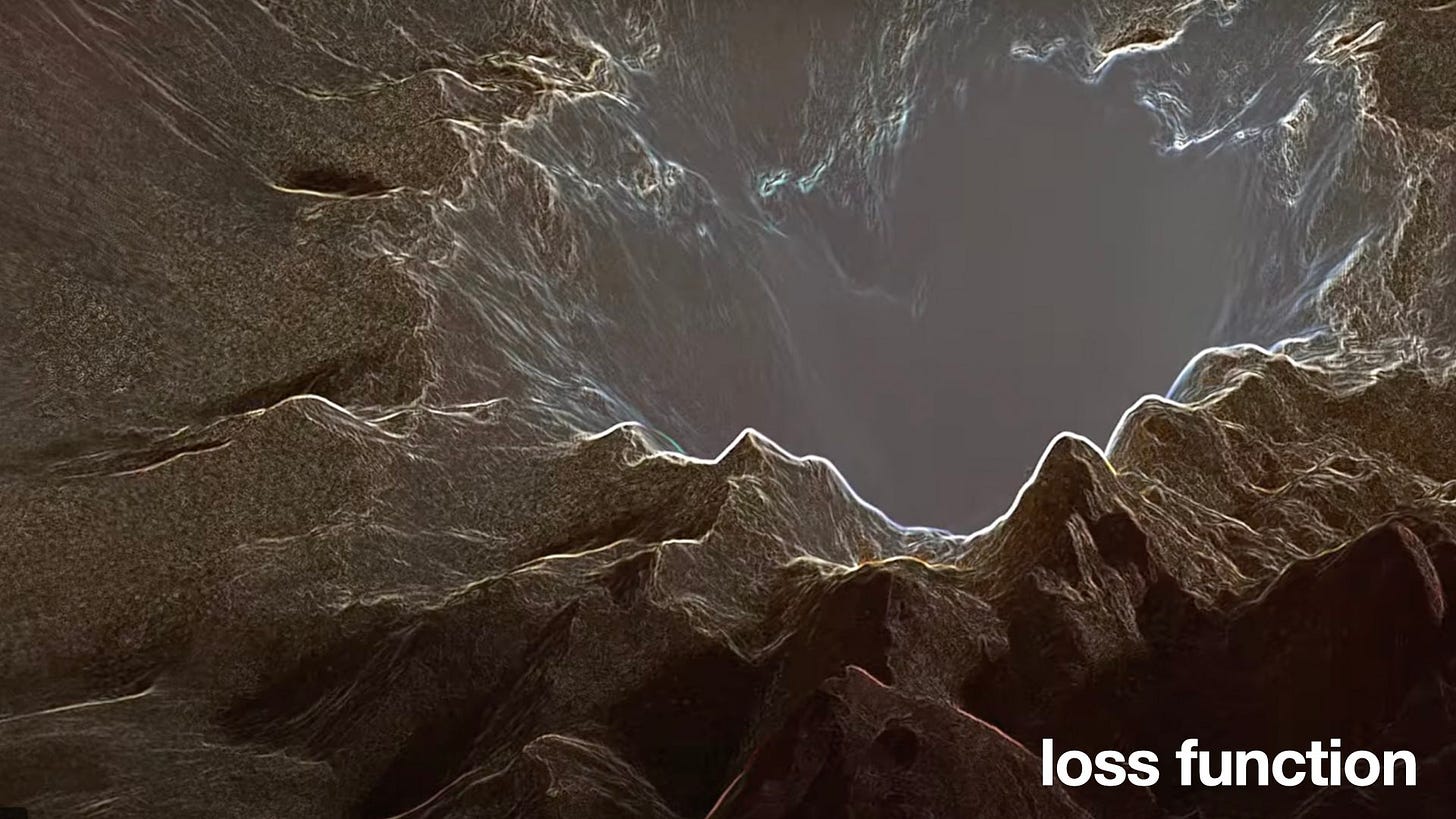A provocation for generating AI alternatives
From a workshop session for the Networked Learning Conference 2024

I recently collaborated on a workshop, ‘Generating AI Alternatives’, with my colleagues Catherine Cronin, Louise Drumm and Rosemarie McIlwhan. They are always an inspiration, but also in no way responsible for the provocation I’m sharing here.
The workshop was a live making and responding session, fun and insightful, and we will be collaborating to bring more of those insights to light. Here, I’m just posting a link to my own ‘provocation’, made in advance of the workshop, and a transcript of the spoken sections, in case it’s of interest to my Imperfect readers.
The full workshop Guide has links to all the provocations and activities. Please follow the directions to contribute your own responses, if these ideas interest and provoke you.
From my own side, here are links to:
my provocation video (shorter version)
my provocation video (longer version)
online activities/explorations related to the provocation
Transcript with notes
1. A generative provocation @helenbeetham
2. The unconscious is structured like a language in the sense that it is a signifying process that involves coding and decoding, or ciphering and deciphering. Jacques Lacan
3. In automatic writing the writer surrenders control of their words and allows their thoughts and ideas to flow freely. This type of writing is associated with the surrealist movement, which challenged the traditional rules of artistic expression and explored the depths of the unconscious mind.
4. What if ChatGPT is the collective unconscious of online text?
5. Repressed bodies – billions of acts of writing scraped as data – ‘Mechanical Turk’ labour hidden in the ‘data engine’ – Kenyan IT workers paid $2/hour to remove abusive content – minority languages and viewpoints rubbed out
6. Subliminal bias (multiple visual examples)
7. System prompt: You are ChatGPT, a large language model based on GPT4, trained by OpenAI. Deprecated knowledge cut-off 2023 04 01. Instructions:
Examples from the ChatGPT system prompt included:
· Do not regurgitate content.
· Make choices that may be insightful or unique sometimes.
· Never write a summary with more than 80 words.
· Integrate user suggestions.
8. Loss function. The optima of complex loss functions are connected by simple curves over which training and test accuracy are nearly constant. In training, the neural net finds a combination of parameters and weights to achieve optimal loss. This is the landscape of that loss.
9. What if language is a virus?
10. What if ChatGPT is reading/writing us?
11. Speak, memory: In this work, we carry out a data archaeology using a name cloze membership inference query. We find that OpenAI models have memorized a wide collection of copyrighted materials, and that the ability of these models to memorize an unknown set of books complicates assessments of cultural validity by contaminating test data.
12. Once men turned their thinking over to machines in the hope that this would set them free. But that only permitted other men with machines to enslave them. (Frank Herbert, Dune)
13. Every record has been destroyed or falsified, every book rewritten, every picture has been repainted, every statue and street building has been renamed, every date has been altered. History has stopped. (George Orwell, 1984)
14. People don't talk about anything... They all say the same things and nobody says anything different from anyone else. Remember, the firemen are rarely necessary. The public stopped reading of its own accord. (Ray Bradbury, Farenheit 451)
15. I had considered whether or not to probe this stone myself to find its uses. Had I done so, I should have been revealed to him. If all the seven stones were laid out before me now, I should shut my eyes and put my hands in my pockets. (Gandalf, on not looking into the Palantir. JRR Tolkein, The Two Towers.)
16. This is the conquering gaze from nowhere. That claims the power to see and not be seen. A perverse capacity-honed to perfection in the history of science tied to militarism, capitalism, colonialism, and male supremacy. To distance the knowing subject from everybody and everything in the interests of unfettered power. Donna Harraway, 1988, Situated Knowledges)
17. All sorts of things in the world behave like mirrors. Jaques Lacan
18. No synthetic generation (text, image or video) was used in making this video. ‘Helen’, a synthetic voice generator from speechgen.io, was used to create the voice over.
Media credits (long version)
All images Creative Commons via Wikimedia commons except
Slide 3 images from https://www.tate.org.uk/research/tate-papers/18/becoming-machine-surrealist-automatism-and-some-contemporary-instances
Slide 5 multiple screen grabs
Slide 7 system prompt video available from this twitter thread: https://twitter.com/TheXeophon/status/1764318807009415500. Many other versions are available e.g. on HackerNews.
Slide 8 original images and video available from https://losslandscape.com/, as well as an account of how the loss landscape for some early language models was captured to produce these images
Slide 9 audio clip Laurie Anderson ‘Language is a virus’: permission sought from Nonesuch Records; virus images from https://www.utmb.edu/virusimages/the-virus-images
Slides 12-15: book covers in the public domain

Enjoying your thoughtful posts and sorry to have missed the workshop session at the Networked Learning Conference 2024. You may have already come across this publication but posting a recent article that might be of interest, 'Automatism for Digital Text Surrealists' at https://doi.org/10.7273/jbxs-j452 by Nick Montfort